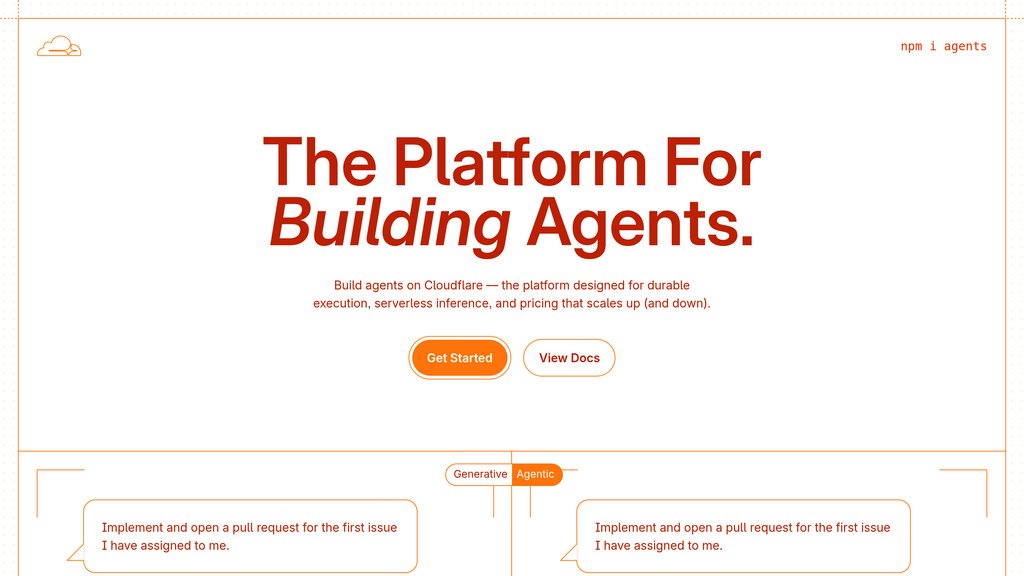Cloudflare Agents
Build autonomous agents on Cloudflare's global network for complex tasks
Introduction
What is Cloudflare Agents?
Cloudflare Agents provides a developer platform and SDK for constructing and deploying autonomous agents. These agents are designed to perform tasks, facilitate real-time communication, handle persistent data, schedule workflows, and connect with external APIs and databases. They can process diverse inputs like chat or voice, utilize large language models, and achieve massive scalability through Cloudflare's Durable Objects for stateful operations. The platform emphasizes extensibility, real-time WebSocket communication, and smooth integration with contemporary application frameworks, making it ideal for building robust, interactive, and adaptive agent-based applications.
Key Features:
• Persistent State Management: Offers robust state management with automatic synchronization between agents and clients, event triggers for state modifications, and SQL database connectivity for durable data storage.
• Real-Time Interaction: Enables live updates and two-way communication with clients via WebSockets, perfect for interactive chats, extended operations, and instant feedback.
• Extensible Tool and API Connectivity: Simplifies linking agents to a wide array of external resources, including APIs, databases, LLMs, and headless browsers, with support for the Model Context Protocol (MCP) for secure third-party connections.
• Serverless and Elastic Scalability: Deploys on Cloudflare Workers and Durable Objects, allowing for horizontal scaling to support millions of agents with minimal latency, positioned near users or data sources.
• Workflow Automation and Scheduling: Allows the creation of agents that manage long-running, multi-stage workflows, schedule jobs, and perform asynchronous operations natively within the environment.
• Human-in-the-Loop Capabilities: Facilitates the integration of human feedback and oversight into agent workflows, catering to scenarios that need approval, escalation, or manual review steps.
Use Cases:
• Smart Conversational Assistants: Develop real-time chat agents for customer service, sales, or team collaboration that manage intricate queries, preserve context, and can transfer to human operators when necessary.
• Automated Process Coordination: Construct agents that streamline business operations, schedule activities, and orchestrate multi-step workflows across various systems and APIs.
• Data Synthesis and Access: Create agents that interface with databases, retrieve and analyze information, and provide insights or reports to users or other applications.
• Voice and Multimodal Interfaces: Build agents that process voice commands and integrate with chat and other modes for cohesive user interactions.
• Tool-Enhanced Automated Reasoning: Deploy agents that utilize external tools and APIs to make informed decisions, automate processes, and dynamically respond to environmental changes.
